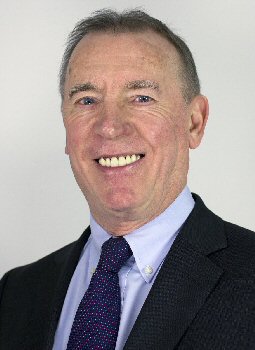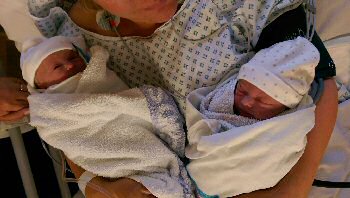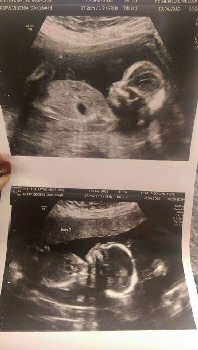|
Volunteers wanted to visit
custody suites
LANCASHIRE Police and Crime
Commissioner Clive Grunshaw is looking for volunteers to check on the welfare of
people in custody.
Residents have the chance to get involved and make a difference to Policing in
Lancashire, by becoming an Independent Custody Visitor (ICV).
There are currently more than 40 volunteer ICV's in the county, who make random
unannounced visits, in pairs, to Police Stations. Their job is to speak to
detainees to ensure they are being treated properly and work with staff to
resolve any issues.
Mr Grunshaw said:- "ICV's are absolutely vital to ensure we continue to
work to the highest standards. The wellbeing of detainees, many of whom can be
quite vulnerable people, is very important and by providing impartial feedback
our ICV's help to ensure everyone is treated fairly.
People who find themselves in the cells may have underlying problems with things
like mental health and substance misuse so it is vital they have access to the
help they need."
ICVs are expected to carry out a minimum of 10 visits each year and the
Commissioner is looking to increase the number of volunteers working to ensure
detainees are treated fairly.
Mr Grunshaw added:- "ICV's tell me they find their work rewarding because
they have the chance to speak up for vulnerable people and make a difference to
their communities.
Volunteering is an excellent way to give something back to the community, gain
new skills and improve your CV so I hope to see a wide range of applications
from people of all backgrounds."
Sheila Maw, an ICV coordinator working in East Lancashire, said the volunteers'
work benefits both detainees and the Police. She added:- "I love doing it; it is very rewarding work.
Going in and seeing people who end up in custody, makes you think. We tend not
to see another side of life and I think it is something we ought to do."
Tony Mozley, an ICV coordinator working in Blackpool, added:- "I have been
doing it for 13 years after I retired from work 14 years ago and saw an advert
in the paper. There are never 2 days the same. It is rewarding because you feel
like you are doing something useful."
ICV's work with a partner and arrive unannounced at Police Stations. Their unique
status means Police must give them immediate access to the custody area, cells,
detention rooms and charge rooms.
After the visit they prepare a report, a copy of which goes to the Office of the
Police and Crime Commissioner and is forwarded to the custody inspector for any
action.
For anyone interested in becoming an ICV, details are available
online or
alternatively call Jay Nicholas at the PCC's Office on:- 01772 532251.Richard Fraser appointed Trust Chair

RICHARD Fraser has been appointed Chair of Southport and
Ormskirk Hospital NHS Trust.
He succeeds Sue Musson who becomes chair of Lancashire Teaching Hospital NHS
Foundation Trust, in the New Year (2017).
Richard, who is also chair of St Helens and Knowsley Teaching Hospitals NHS
Trust, will serve in post from 1 December 2016 to 30 November 2018.
The appointment was made by NHS Improvement (NHSI), the national quality and
financial regulator for the NHS.
Iain McInnes, interim Chief Executive, said:- "Richard's appointment means
we have an experienced chair in place to further support the stable leadership
of the Trust.
NHSI will work with him to ensure he has support in place to conduct both roles
successfully and independently of each other."
Born in Glasgow, Richard studied civil and mechanical engineering at university.
His first senior job was site manager during the construction of the landmark
oil storage tanks at Stanlow, near Ellesmere Port. He has more than 30 years'
experience as a Board director at a number of large companies.
Non executive appointments to NHS trusts made are subject to the Code of
Practice of the Commissioner for Public Appointments.
Richard is entitled to receive a remuneration of £30,000 per annum. He has not
declared any political activity in the past 5 years.
Crackdown on Private Hire drivers breaking
pick up rulesPRIVATE hire
drivers are being warned they could face a fine or prosecution if they pick up
passengers who haven't pre-booked the fare.
In the run up to Christmas undercover operations are being carried out by City
Council Licensing Officers and Merseyside Police to identify any Private Hire
drivers who are picking up fares which are not pre-booked.
On a night operation, named:- 'Operation Inman', 5 private hire drivers
were found to be playing for hire, another was found waiting in a Hackney rank
and 2 had no plates affixed to their vehicle.
The drivers will now go to Court and may face prosecution, which could result in
6 to 8 points on their driving licence and a heavy fine.
Councillor Christine Banks, Chair of the Licensing Committee, said:- "We
want to make sure that our taxi industry is fair, and we are determined to crack
down on those private hire drivers who are flouting the rules and taking work
from hackney cabs.
The run up to Christmas is an incredibly busy time for drivers and unfortunately
there is a very small minority who breach the regulations to make extra money;
we are committed to taking action and in doing so, send a clear message out to
stop this activity being commonplace over the next few weeks." During the operation,
Undercover Officers approached an additional 60 Private
Hire drivers; all of whom refused to accept the fare. |
 |
Liverpool mum speaks out on
lifesaving scheme after twins operated on in womb

A Liverpool Hospital has become the 1st in the North West to support the TTTS Registry; a new scheme aimed at
saving the lives of unborn twins.
Multiple births charity Tamba has partnered with 9 fetal medicine centres in the
UK, including Liverpool Women's Hospital, to set up the Registry. Leading Clinicians, at the
Hospital, are now entering data into the TTTS (twin to twin
transfusion syndrome) Registry about families who are diagnosed with the
devastating condition.
Liverpool Women's NHS Foundation Trust is the only centre in the North West
supporting the Registry and from 2017 will also be offering laser ablation; a highly specialist procedure in which
Doctors perform surgery on the twins'
placenta while they are still in the womb.
It's hoped the data collected will help improve TTTS outcomes in future and save
more families from its life changing effects.
Dr Surabhi Nanda is a Consultant in Maternal Fetal Medicine at Liverpool Women's
NHS Foundation Trust. Hers is 1 of the oldest dedicated multiple pregnancy
clinics in England and is also the model used in the NICE guidelines on
multiple births.
Dr Nanda and her team help multiple families from a wide area spreading from
Liverpool to Lancaster, the Isle of Man, North Wales and up as far as Crewe. She
said:- "Not only have we joined the TTTS Registry, but next year we are
hoping to offer laser ablation too, so our patients don't have to travel to
centres in Birmingham and London for the procedure.
We have monthly twin evenings where we explain to women with multiple
pregnancies what TTTS is and how the Registry works, so they know they have a
lot of support.
By joining the Registry, we hope to be able to monitor what the long-term
outcomes are for our patients. In future we will be able to use the data to
advise them on the incidences of TTTS and compare our own local statistics to
the national standard.
I think the Registry is an absolutely brilliant concept. I'm really excited to
be working on a project which will hopefully achieve our goal of reducing TTTS
mortalities."

The rare and often devastating condition of
TTTS occurs in about 10% to 15% of monochorionic (identical) twin pregnancies. It
also affects higher multiple pregnancies which include monochorionic twins. If
left untreated, 90% of these babies will die. Even with treatment, there is only
up to a 70% chance of both babies surviving. Of those that do survive, there is
a chance they will suffer from a disability or health condition.
The condition occurs when blood passes from 1 twin (the donor) to the other
baby (the recipient). In most cases the donor twin becomes smaller and anaemic.
They also usually have a reduced amount of amniotic fluid and can become 'stuck'
to the side of the uterus. The recipient baby becomes bigger and the higher
blood volume puts a strain on their heart.
Dr Matthew Jolly, National Clinical Director for Maternity Review and Women's
Health at NHS England, said:- "I'm delighted to see the TTTS Registry
is now underway. Recording accurate data on high risk multiple pregnancies will
be key to improving outcomes for multiple birth families in the future. I hope
even more Hospitals across the country sign up to the registry and look forward
to many of the remaining clinical dilemmas being answered."
The TTTS Registry was officially launched in November 2015; the 1st of its kind
in the UK. Now 9 centres are actively using the service, including:- 4 Hospitals
in London, 1 in Northern Ireland and 1 in Scotland.
Tamba (Twins and Multiple Births Association) is also keen to expand the project
and see the Registry rolled out to other Hospitals which perform both maternity
and neonatal services.
Keith Reed, Tamba's CEO, said:- "Although we've had a great 1st year and
we are really pleased with the number of fetal medicine centres using the
Registry, we are still only skimming the surface in terms of the data we could
potentially be collecting.
In order to build the best possible picture of TTTS cases in the UK, and help
see which treatments offer the best possible outcomes, we need more Hospitals
with fetal medicine departments to sign up."
The Registry includes details such as the gestational age at diagnosis and the
weight of the babies and their outcomes, so Doctors can see what the best
practices are and why. It can also be used by Doctors to compare cases, so they
can see how other twins in similar situations were treated and what happened to
them.
Jayne Sefton and her partner David Smith were distraught when their twin girls
were diagnosed with TTTS, early in 2016. Jayne said:- "I had never
heard of TTTS before and everyone I spoke to just said 'oh twins, I'd love to
have twins' not realising how complicated twin pregnancies can be.
I know from speaking to other mums on social media that TTTS outcomes aren't
always positive, so I know how incredibly lucky we were. Sometimes TTTS babies
can die, or be left with disabilities, so anything we can do to learn more about
the condition I am obviously very supportive of." |












